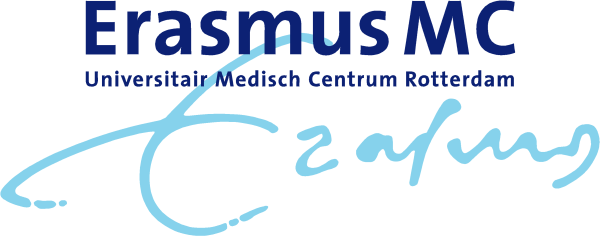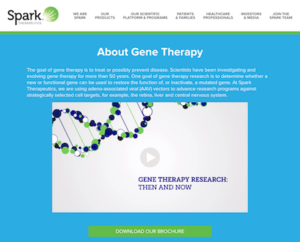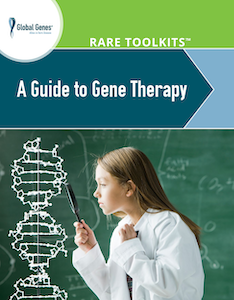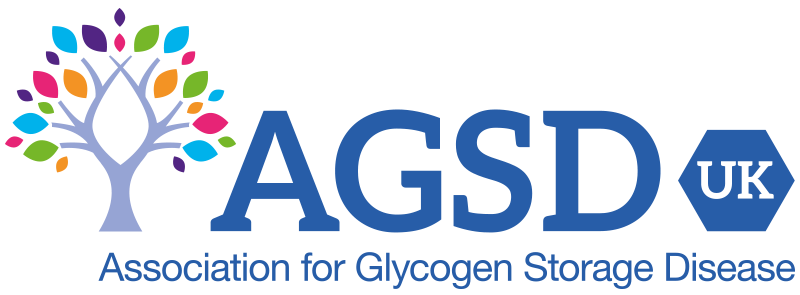Much research has been focussed on developing enzyme replacement therapy (ERT) and various ways to enhance it. Gene therapy is also an important area for attention.
Introducing the research agenda
In 2006 an Enzyme Replacement (ERT) therapy for Pompe disease received approval from regulators in the US and EU (FDA and EMA). Since that time a growing number of bio-similar ERTs, next generation ERTs, Cell and Gene Therapies (regenerative therapies) have been under investigation. On anoher tab is a summary of current research known to AGSD-UK, there are likely to be others yet to declare their hands.
A word about New-born Screening
Newborn screening (NBS) is the most effective way to reliably detect infants with Pompe disease at a very early age. Infants with classical Pompe disease (IOPD), in particular, should receive therapy within days or weeks of birth in order to gain its full benefit; before they suffer irreversible muscle damage.
In the United States of America there are an increasing number of states adopting new-born screening for Pompe disease. They are identifying many more infants much earlier and therefore starting treatment earlier. Late-Onset Pompe Disease (LOPD) is also found to be more prevalent through NBS, and the USA figures appear to show that more than twice as many people have the condition than previously thought.
IPA/Erasmus MC Pompe Survey
The IPA/Erasmus MC Pompe Survey is an ongoing international study in which data are collected from children and adults with Pompe disease by means of self-report questionnaires. It is a joint project of Erasmus MC and the International Pompe Association (IPA).
The goal of this survey is to gather as much information as possible on the natural course of the disease, the severity of the disease in the patient population, and the impact on the daily life of the patients.
At this moment more than 300 Pompe patients worldwide have participated in this survey.
Contact AGSD-UK if you would like to be enrolled onto the survey.
Educational centres and research
Many academic centres are engaged in research for Pompe disease around the world.
Current research includes:

Duke University, North Carolina
Duke’s Department of Pediatrics has a wide range of studies for IOPD and LOPD, including their Gene therapy research. Duke are also investigating adjunctive therapies, incuding Albuterol/Clenbuterol.

Erasmus Medical Centre – Pompe Center
The proof of principle of ERT for Pompe disease was established through research at Erasmus MC, with a helpful grant from AGSD-UK in 1996. The Pompe centre remains a centre of excellence for research and management of Pompe. Pim Pijnappel, Associate Professor Molecular Stem Cell Biology is currently leading research to explore lentiviral stem cell therapies for Pompe disease.

Versailles University – RNA Oligonucleotides
At a Pompe disease symposium in Copenhagen in November 2018, Luis Garcia presented investigations into Splice switching of the most common IVS1 mutation. This is a form of editing that will modify the gene to produce more enzyme. IVS1 is a “leaky” mutation that most Pompe adults have, and does already produce small amounts of GAA. Pim Pijnapple (Erasmus MC) gave a short talk on the same topic stating that IVS1 is common to 90% of European Pompe adults.
![]() Go to the Versailles University web site.
Go to the Versailles University web site.
Cell and Gene (Regenerative) Therapy
There are a growing number of resources online to learn more about cell and gene therapies. We will add to these in time:
 The Science of Gene Therapy.
The Science of Gene Therapy.
Spark Therapeutics have a video on gene therapy and you can download a brochure.![]() Visit Spark Therapeutics web site.
Visit Spark Therapeutics web site.
 Global Genes Toolkit – A Guide to Gene Therapy
Global Genes Toolkit – A Guide to Gene Therapy Download this toolkit on understanding gene therapy.
Download this toolkit on understanding gene therapy.
Gene Therapy: Your Questions Answered
A video presented in a Q&A format, presented by National Organization for Rare Disorders (NORD).
Report on WORLD Symposium 2018
The WORLD Symposium is an event to present the latest research in Lysosomal storage disorders (e.g. Pompe disease) from basic science through to the results of clinical trials. AGSD-UK Charity Director and Pompe Coordinator, Allan Muir, attended the event in San Diego to join workshops, meet privately with industry partners developing therapies for GSDs, and to learn about the latest research.
Clinical trials registries
Search the US, European and World Health Organisation registries.
For recent status of research that has reached the clinic for human studies, it is worth checking with the three clinical trial registries, using search terms and filters to focus the results on recent studies.



